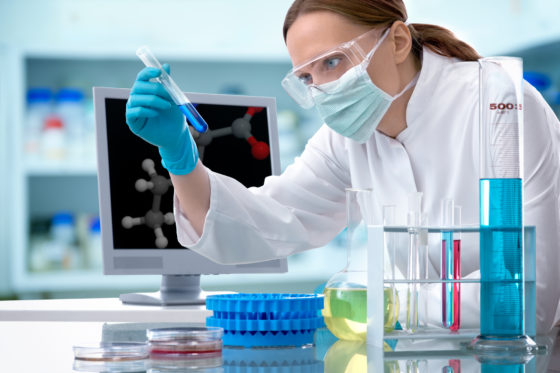Corona testing system close to gridlock as infections rise, microbiologist warns


The head of one of the Netherlands’ largest testing laboratories has warned the coronavirus testing system risks grinding to a halt if capacity is not increased.
Nearly 200,000 people were tested for Covid-19 in the last seven days as the number of confirmed cases increased by around 50% for the second week running, according to the latest report by the public health agency RIVM.
Health minister Hugo de Jonge has said the government aims to raise the daily limit from 30,000 to 50,000 by the end of the month and 70,000 by the end of October. But microbiologist Bram Diederen, head of the Microvida lab, told the Volkskrant the system was already close to breaking point.
‘We are already close to the limit,’ he said. ‘People are waiting three, four or five days for a test result. That’s simply too long, they want to know within a day. And it’s only September. The weather is lovely, everything’s fine in the hospitals, but I guarantee that once we get into October the system will be completely gridlocked. It’ll be a disaster.’
Diederen called for the government to extend priority testing for frontline workers such as hospital staff and teachers to other professions whose members are unable to work from home full-time, in order to check the spread of the virus.
He said newer, faster tests needed to be implemented as soon as possible, while another option is to have Dutch tests analysed by laboratories in countries with more capacity, such as Germany.
‘The big megalabs in Germany have a huge bulk capacity,’ he said. ‘What I don’t understand at the moment is that the number of tests we have has stalled, even though the big labs don’t seem to have any shortfall.’
High-volume lab
A spokesman for health minister Hugo de Jonge said the government was in talks with three laboratories in other countries about analysing Dutch tests, as well as exploring options to build a ‘high volume laboratory’ in the Netherlands.
‘We are looking at how we can adapt our testing policy and introducing promising quick-response tests is obviously one of the options we want to try,’ the spokesman added.
The government has also expanded its system for measuring the virus in sewage to 300 testing points, from 29 in April, as it tries to improve its monitoring of the spread of the disease.
The average number of virus particles per millilitre of waste water more than doubled in the last week to 276, after falling steadily since mid-August, according to the government’s corona dashboard. The figure per region ranges from 50 in IJsselland to 928 in Flevoland.
Meanwhile, students in Delft have been sent a letter signed by the students’ associations and the local health service warning them that the town is on the brink of a local lockdown unless they comply with the coronavirus rules and testing regime.
‘At the moment 80% of infected people in Delft are students and the number of infections is doubling every 7 days,’ the letter says. ‘If we do nothing, there is a strong chance that we will end up in a local lockdown in Delft.’
The letter urges students to observe social distancing in their accommodation – noting that most patients catch the virus in private spaces – and get tested even if they have mild symptoms such as a cold or runny nose.
It concludes: ‘The number of infections and contacts has to go down. It is five minutes to midnight. It’s not too late, but time is pressing.’
Thank you for donating to DutchNews.nl.
We could not provide the Dutch News service, and keep it free of charge, without the generous support of our readers. Your donations allow us to report on issues you tell us matter, and provide you with a summary of the most important Dutch news each day.
Make a donation